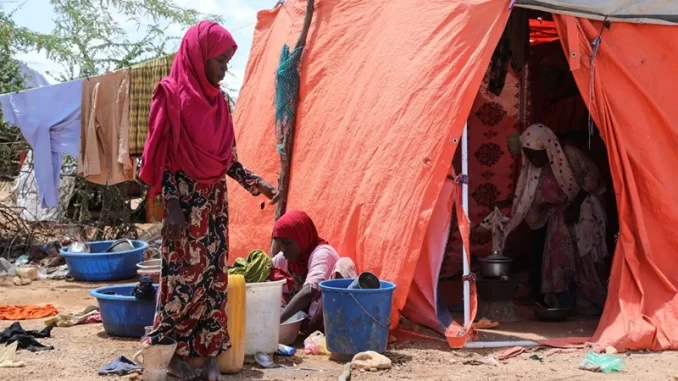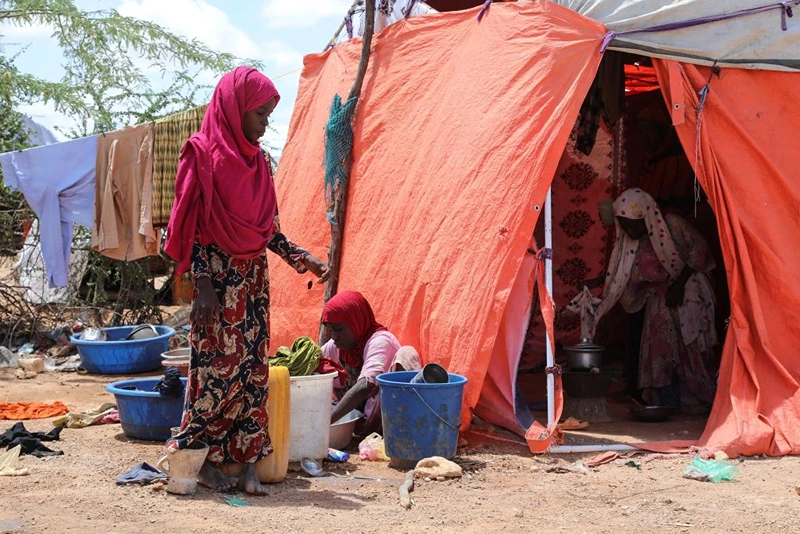

OAN’s Geraldyn Berry
11:45 AM – Wednesday, May 23, 2023
At the United Nations Summit on Wednesday, the United States announced that approximately $524 million in humanitarian aid would be provided for the Horn of Africa. This comes as the nation is experiencing a climate crisis with reportedly the worst drought they have had in over 40 years.
Advertisement
In addition, Germany’s U.N. Ambassador Antje Leendertse has announced a donation of $226 million, which does not include significant funds “for development and stabilization” in the Horn of Africa for Somalia, Ethiopia, and Kenya.
The U.S. has said that the new funding will support refugees, asylum seekers, internally-displaced and stateless people, and millions affected by conflict, drought, and food insecurity.
Meanwhile, the U.K. Minister for Development and Africa, Andrew Mitchell, has said that the nation is pledging an additional $119 million for the countries Somalia, Ethiopia, and Kenya, which accounts for $119 million total. According to U.S. Ambassador to the U.N. Linda Thomas-Greenfield, the $524 million in new funds will bring the total U.S. contribution to $1.4 billion for the fiscal year ending on September 30th.
“Sadly, the humanitarian needs in Somalia, Ethiopia, and Kenya are now greater than ever with over 23.5 million persons facing acute food insecurity,” she said in a statement. “That’s why the United States is continuing to support the humanitarian response in the Horn with this new funding.”
During the summit, the U.N.’s Secretary-General, Antonio Guterres, urgently appealed for financial assistance to address the severe humanitarian crisis in the Horn of Africa. The United Nations had requested $7 billion, but only $1.6 billion has been granted so far, which is significantly less than what had been suggested. The limited funding has been insufficient to support the 43.3 million people in the region who were in desperate need of help, including the 21 million individuals who were suffering from severe malnutrition.
Guterres emphasized that the crisis is a result of multiple factors, including an ongoing drought, large-scale displacement due to prolonged violence, and inflated food prices. He stressed the importance of donors providing substantial financial support promptly to prevent the situation from escalating into a catastrophe.
The lack of adequate funding presents significant challenges in delivering essential aid, including food, water, healthcare, and shelter to vulnerable populations in the Horn of Africa. Without sufficient resources, it was determined that it would be extremely difficult to alleviate the devastating consequences of the humanitarian crisis and provide the necessary relief to those struggling.
Given the seriousness of the situation, it was deemed crucial for the international community to heed the Secretary-General’s call and increase their support.
Swift action and additional funding was determined to be necessary to prevent further suffering and to offer hope and assistance to the millions of people who are struggling to survive in the region.
Stay informed! Receive breaking news blasts directly to your inbox for free. Subscribe here. https://www.oann.com/alerts

